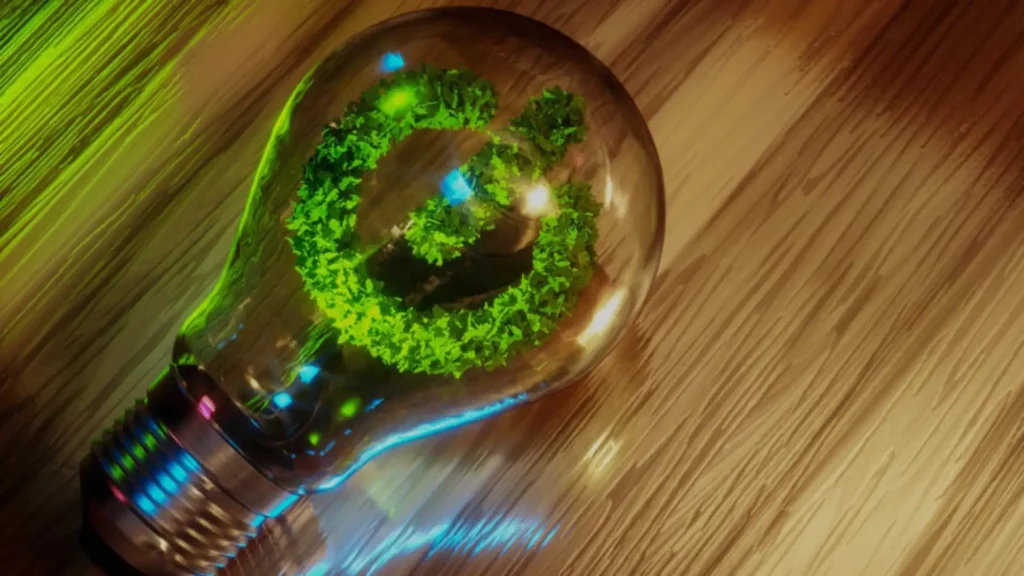9 Simple Ways How You Can Be Power Efficient
In today's fast-paced world, our family understands the importance of being power efficient. We recognize that our energy consumption not only affects our environment but also impacts our monthly utility bills. With that in mind, we have made a conscious effort to adopt power-efficient habits in our daily lives. By making simple yet effective changes, we have been able to reduce our carbon footprint while enjoying significant savings. In this blog post, we will share the power-efficient practices that have worked wonders for our family.
From optimizing our lighting and appliance usage to making smart technology choices, these easy-to-implement strategies have not only made us more environmentally conscious but also boosted our energy savings. Let's dive into the simple ways that you too can become power efficient and make a positive impact on both the planet and your pocket!
See also our post on The Most Efficient Power Supply
Understanding Power Efficiency
Power efficiency, often referred to as energy efficiency, encompasses a range of strategies and practices aimed at utilizing energy resources in the most effective and sustainable manner possible. At its core, power efficiency entails optimizing energy consumption to minimize waste while still achieving the desired level of output or comfort. By adopting technologies, behaviors, and practices that prioritize efficient energy use, power efficiency aims to reduce overall energy consumption, lower greenhouse gas emissions, and conserve precious natural resources.
The concept of power efficiency goes beyond simply reducing energy consumption; it also focuses on maximizing output. This means finding innovative ways to accomplish tasks or deliver services while utilizing the least amount of energy possible. By doing so, power efficiency not only benefits the environment but also contributes to cost savings and improved performance. The ultimate goal is to strike a harmonious balance between energy consumption, environmental impact, and overall productivity.
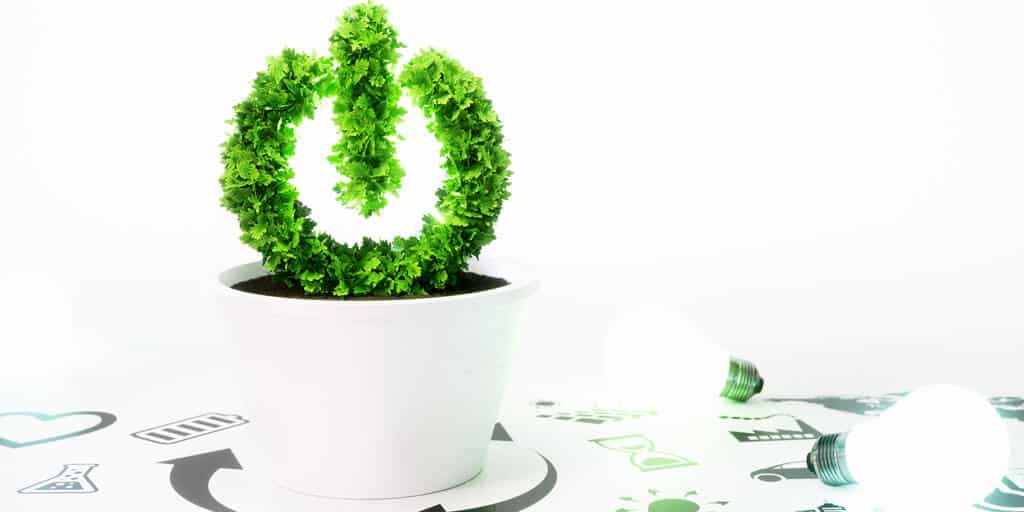
How Power Efficiency Works: Strategies for improve energy efficiency
Power efficiency is a multifaceted approach that incorporates various strategies and technologies to achieve optimal energy utilization. Let's explore some additional key principles and techniques that contribute to power efficiency:
Efficient HVAC Systems
Heating, ventilation, and air conditioning (HVAC) systems play a significant role in energy consumption. Power efficiency is achieved by utilizing high-efficiency HVAC systems that are properly sized for the space they serve. This includes using advanced heat exchangers, variable speed motors, and smart controls to optimize energy usage while maintaining comfort levels.
Renewable Energy Integration
Incorporating renewable energy sources, such as solar panels or wind turbines, into the energy mix is a fundamental aspect of power efficiency. By generating clean energy on-site, reliance on traditional fossil fuel-based power decreases, reducing environmental impact and promoting sustainability.
Check also our post on GSL Energy Powerwall and BESS Container
Demand Response Programs
Power efficiency involves participating in demand response programs offered by utility companies. These programs incentivize consumers to reduce energy usage during periods of high demand, helping to stabilize the grid and avoid the need for additional power generation.
Read also our post on PG&E Power Purchase Agreement
Building Envelope Enhancements
Improving the building envelope through proper insulation, weatherstripping, and window treatments significantly reduces heat transfer and air leakage. By minimizing unwanted heat gain or loss, power efficiency is improved, reducing the load on heating and cooling systems.
Energy Audits and Monitoring
Conducting energy audits and utilizing energy monitoring systems allows for a comprehensive evaluation of energy usage patterns. Identifying areas of inefficiency and implementing targeted solutions can lead to substantial energy savings.
Optimized Lighting Design
Power efficiency encompasses the use of energy-efficient lighting systems that go beyond LED technology. Advanced lighting controls, such as occupancy sensors and daylight harvesting, automatically adjust light levels based on occupancy and available natural light, further reducing energy consumption.
Smart Home Integration
energy at home during technology enables efficient energy management by providing real-time insights into energy usage, allowing users to monitor and control devices remotely. Integration with smart assistants and mobile apps offers convenient control over lighting, HVAC, and other energy-consuming devices.
Heat Recovery Systems
Heat recovery systems capture and repurpose waste heat generated from industrial processes or HVAC systems. By utilizing this waste heat for other heating or cooling needs, power efficiency is enhanced, reducing the reliance on additional energy sources.
Key Features and Benefits of Power Efficiency:
Power efficiency offers a myriad of features and benefits that extend beyond cost savings and environmental sustainability. Let's explore additional advantages that arise from embracing power efficiency:
Improved Indoor Air Quality
Power efficiency often involves the use of advanced HVAC systems with enhanced filtration and ventilation capabilities. These systems help remove contaminants, allergens, and pollutants from the indoor air, promoting a healthier living or working environment.
Noise Reduction
Power-efficient appliances and equipment are often designed with noise reduction features. By utilizing technologies that minimize vibrations and operate at lower noise levels, power efficiency contributes to a quieter and more serene environment.
Load Management
Power efficiency includes load management techniques that optimize energy distribution and usage within a system or grid. By effectively managing the load, power efficiency helps prevent power outages, voltage fluctuations, and unnecessary strain on the electrical infrastructure.
Grid Resilience
Power efficiency plays a vital role in ensuring the resilience and stability of the electrical grid. By reducing peak demand and implementing demand response programs, power efficiency helps avoid blackouts, improves grid reliability, and enhances the overall performance of the energy infrastructure.
Health and Safety Benefits
Power efficiency measures often result in safer electrical systems and reduced risks of electrical hazards. By upgrading to energy-efficient lighting, for example, the risk of fire caused by overheating or faulty wiring is minimized, ensuring a safer living or working environment.
Innovation and Job Creation
The pursuit of power efficiency drives innovation and fosters the development of new technologies, creating opportunities for job growth and economic development. From the manufacturing of energy-efficient appliances to the installation of smart energy management systems, power efficiency contributes to a thriving green economy.
Residential and Commercial Value
Properties that prioritize power efficiency gain enhanced value in the real estate market. Energy-efficient homes and buildings are sought after by eco-conscious buyers and tenants, who recognize the long-term cost savings and environmental benefits associated with such properties.
Global Impact
Power efficiency is a collective effort with global implications. By embracing power efficiency at an individual, community, and national level, we can collectively reduce carbon emissions, conserve natural resources, and create a more sustainable world for future generations.
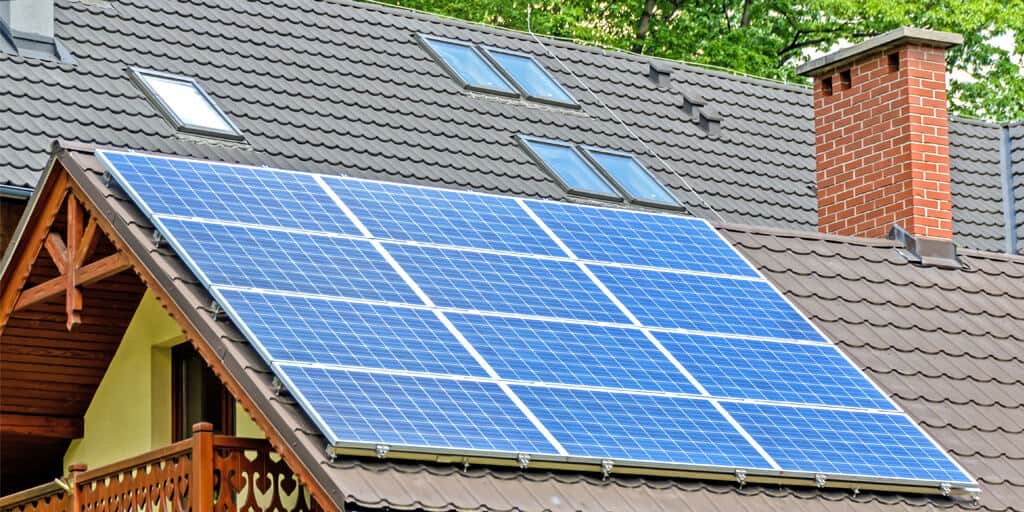
Why You Need to Embrace Power Efficiency:
Embracing power efficiency goes beyond being environmentally conscious—it brings about numerous benefits for individuals, communities, and the planet. Let's delve deeper into the compelling reasons why making power efficiency a priority is essential:
Climate Change Mitigation and Environmental Stewardship
By embracing power efficiency, you actively contribute to mitigating climate change and reducing greenhouse gas emissions. The reduction in energy consumption translates into a smaller carbon footprint, helping to preserve the Earth's delicate balance and protect ecosystems for future generations.
Cost Savings and Financial Stability
Power efficiency provides substantial long-term cost savings. By optimizing energy usage and adopting energy-saving technologies, you can significantly lower your utility bills and achieve greater financial stability. The money saved can be allocated to other essential needs or invested in further energy-efficient upgrades.
Energy Independence and Resilience
Embracing power efficiency reduces reliance on traditional energy sources and helps diversify the energy mix. By maximizing energy efficiency and incorporating renewable energy sources, you can gain greater energy independence, reducing vulnerability to energy price fluctuations and disruptions in the energy supply chain.
Enhanced Comfort and Well-being
Power efficiency measures contribute to improved comfort and well-being. Upgrading to energy-efficient appliances, such as energy-saving HVAC systems and smart thermostats, ensures better temperature control and indoor air quality. Enhanced insulation, coupled with efficient lighting, creates a more pleasant and comfortable living or working environment.
Leadership in Sustainability and Inspiring Change
Embracing power efficiency positions you as a leader in sustainability. By implementing energy-saving practices and technologies in your daily life, you inspire and motivate others to follow suit. Your actions ripple through communities, workplaces, and beyond, driving a collective commitment to environmental responsibility.
Health and Environmental Benefits
Power efficiency positively impacts human health and the environment. By reducing energy consumption, power efficiency contributes to cleaner air and reduced pollution. This, in turn, improves respiratory health, mitigates the impact of climate-related health issues, and fosters a healthier living environment for individuals and communities.
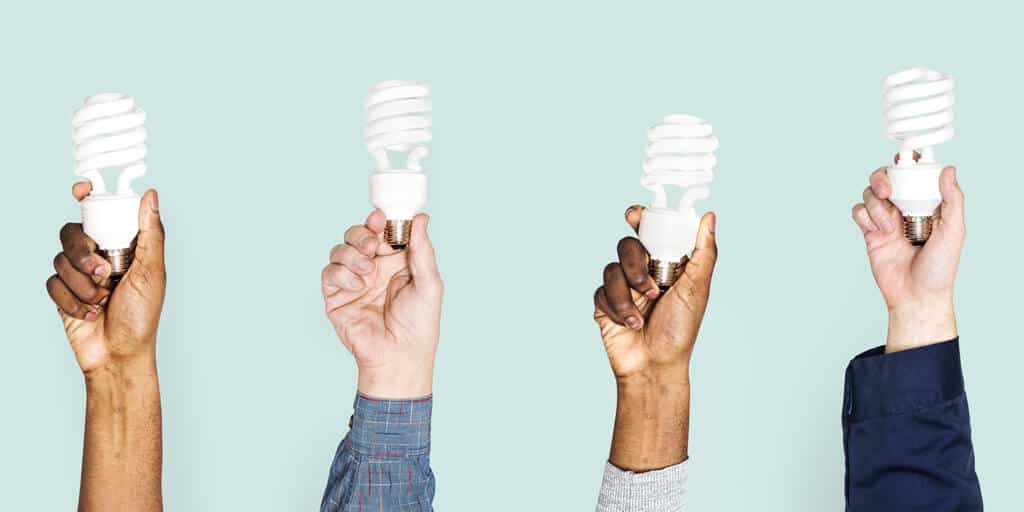
Simple easy ways to save energy at home:
Get into the habit of not wasting electricity.
Common electrical wastage includes: Leaving lights on in empty rooms, boiling a kettle full of water even though you're only making one hot drink, and leaving home computers on while you're away without a good reason.
Switching off your items at the power point also gives a small decrease in power efficient synonym usage when compared to simply turning them off, so don't be afraid to turn items off at the electrical outlet as well.
If the item has a built-in power switch (e.g. a home computer or entertainment console), it's best to make sure they've powered down first so you don't accidentally damage them.
Before you decide to turn on a temperature-changing device (such as a fan or a heater), consider changing your outfit – adding or shedding layers is a free and simple fix.
Make sure you're not getting any drafts in your home.
This might seem ridiculous at first glance, but the more drafts you have, the less effective your heating will be. Sure, you could just turn the heater up, but that's going to use more power.
Just wait until you get a particularly windy day, and then check your windows and doors. Keep an ear out, too – you might even be able to hear the draft before can feel it.
FAQs about power efficient
What does power efficiency mean?
Power efficiency, also known as energy efficiency, refers to the ability to accomplish a task or provide a service while minimizing the amount of energy consumed. It involves utilizing energy resources in the most effective and sustainable manner possible, reducing waste and optimizing energy usage to achieve the desired output.
See also our post on The Benefits of an Energy Efficient Roof
Why is energy efficiency important?
Energy efficiency is crucial for several reasons:
1) Environmental Sustainability: By reducing energy consumption, energy efficiency helps mitigate climate change by decreasing greenhouse gas emissions. It also conserves natural resources and protects ecosystems.
2) Cost Savings: Energy efficiency leads to lower energy bills and operational costs. By using energy more efficiently, individuals and organizations can save money in the long run.
3) Energy Security: Maximizing energy efficiency reduces dependence on imported energy sources and minimizes vulnerability to energy supply disruptions. It enhances energy security and resilience.
4) Economic Benefits: Energy efficiency drives innovation, creates jobs, and stimulates economic growth. It fosters the development of energy-efficient technologies and industries, contributing to a sustainable and prosperous economy.
What is an example of efficient energy?
An example of efficient energy usage is the use of LED (light-emitting diode) lighting instead of traditional incandescent bulbs. LEDs are highly energy-efficient, converting a significant portion of electricity into light while minimizing wasted energy as heat. They consume up to 75% less energy than incandescent bulbs, making them a popular choice for energy-efficient lighting solutions.
What is energy efficiency in buildings?
Energy efficiency in buildings refers to the implementation of strategies, technologies, and practices that optimize energy use and minimize energy waste within the built environment. It involves adopting energy-efficient building design, insulation, lighting, heating, ventilation, and air conditioning (HVAC) systems, as well as utilizing smart controls and renewable energy sources.
The goal of energy efficiency in buildings is to reduce energy consumption, lower greenhouse gas emissions, improve occupant comfort, and achieve long-term cost savings while ensuring sustainable and resilient built environments.
Is it energy-efficient or energy-efficient?
The correct term is “energy-efficient.” It is used to describe technologies, practices, or systems that operate with a high level of energy efficiency. The hyphen connects “energy” and “efficient,” forming a compound adjective that modifies the noun it describes.
Use solar panels.
Solar panels work by collecting sunlight and converting it to electricity. You can use this electricity immediately or have it stored for later to help with power efficiency.
Many solar panel owners use a mixture of solar electricity and vendor-bought electricity for a realistic mix of convenience and saving money and/or energy efficiency examples.
Solar panels are no longer prohibitively expensive, so there's no excuse to not at least consider them. If you don't believe us, check it out for yourself here.
Change the way you wash your clothes.
Wash your clothes with cold water when you can, because it'll cost less when you do. Use the shortest washing cycle you can, and don't start it until your washing machine is full.
Don't use your clothes dryer every time you wash your clothes – save it for when the weather will make it impossible for your clothes to dry within a reasonable amount of time.
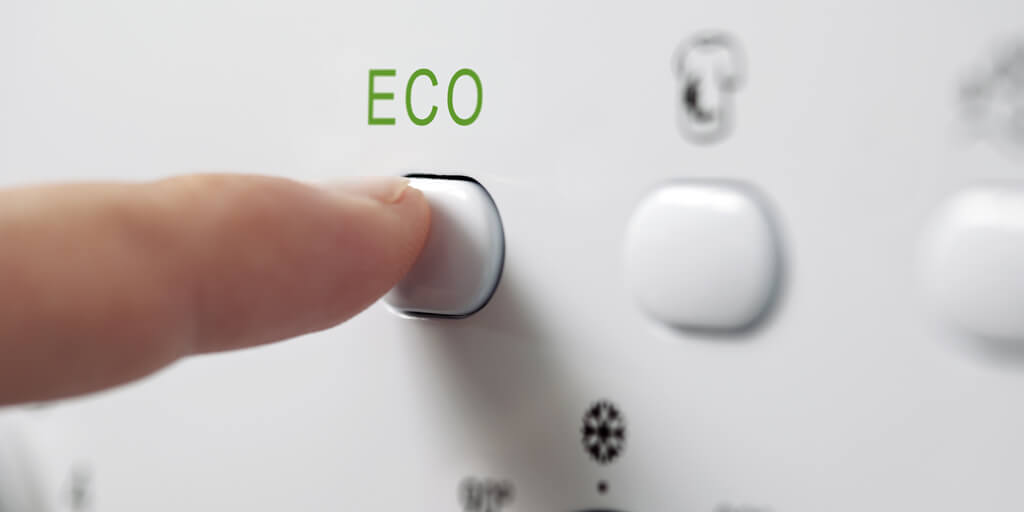
Change the way you wash your dishes.
Dishwashers are very convenient, but they're not very good for saving power. They do, however, make an excellent space-saving rack for dishes.
If you can stop thinking of your dishwasher as an everyday-use item, you'll save yourself a lot of money.
If you must use it, then make sure that it's full first, and use the economy cycle if it has one.
Let your curtains save you money and electricity.
If you have an air conditioning unit that sees a lot of use in the summer, you're probably used to having your curtains open during the day.
If you can break this habit, you'll notice that keeping them closed will allow your house to remain fairly cool – often cool enough that you don't even need to use your AC in that way to help power efficient.
Change the way you cook.
A lot of things on this list can be worked around, but eating food isn't one of them. Fortunately, there are many ways to reduce electricity usage in the kitchen.
For example, Electric ovens use a lot more power than microwave ovens, so using microwave ovens as much as possible can be a good way to start saving on power usage.
Electric stove tops also use a lot of power but aren't so easily avoidable. Keep your lids on the pots whenever you can, to speed up the cooking time.
If you can, a great idea is to cook more food and eat leftovers for the next few meals. If that doesn't appeal to you, how about the idea of keeping the leftovers in the freezer and using them for a meal a little later on in the week, or even month?
Get your home insulated.
Insulation can be done in your floor, walls, and ceilings. It's a good way to save electricity all throughout the year because it'll keep your home cooler in summer and warmer in winter.
The best thing about insulation is that you just need to have it installed in your home, and that's the end of it. You don't have to remember to switch things off or teach yourself any new habits to save money.
Make sure your hot water system is up to date.
If your hot water system is a decade old or more, you probably shouldn't even be using it (for safety reasons).
If you've built onto your home and didn't upgrade your water heater, then your hot water system may be overworked as well, which means it probably won't be as efficient as it should be.
Conclusion:
In conclusion, embracing power efficiency has been a transformative journey for our family. By implementing simple yet effective strategies, we have not only reduced our carbon footprint but also experienced significant cost savings and improved comfort in our home. Through conscious choices, such as optimizing our lighting and appliance usage, integrating smart technology, and considering renewable energy sources, we have become more environmentally conscious and financially stable.
The benefits of power efficiency extend beyond our personal lives. By actively participating in the collective effort to reduce energy consumption, we contribute to global climate change mitigation and environmental sustainability. Our actions inspire others to join the movement, creating a ripple effect that leads to a greener and more sustainable future for generations to come.
We encourage you to embark on your own power efficiency journey. Start by implementing the simple ways discussed in this blog post, tailored to suit your lifestyle and needs. Small changes, such as turning off lights when not in use, adjusting your thermostat, or exploring renewable energy options, can make a significant difference. Together, we can create a more energy-efficient world, one conscious choice at a time.
Sources:
https://www.houselogic.com/organize-maintain/energy-saving-tips/save-electricity/

